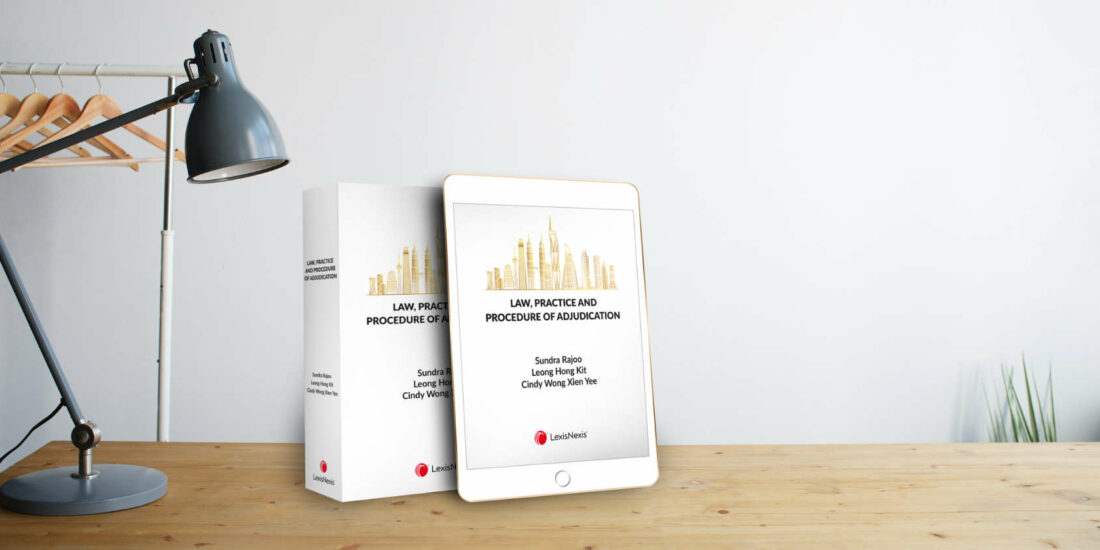Law and Practice of Tribunals in Singapore
General Views of the Publication
This book is basically a guide to the law and procedures governing tribunals. It is plain reading and digestible by any person, whether he is a tribunal member, practitioner, layperson or researcher. Those responsible for the production of this book have put much effort into researching the law and processes that dictate tribunal hearings. The contents are well-structured, making it easy to follow.
It touches on three categories of tribunals in Singapore:
- Administrative tribunals which determine disputes between the Government and private persons or bodies, arising from public law.
- Tribunals hearing civil claims on private matters between individuals or private bodies commonly heard in the civil courts.
- Disciplinary tribunals to hear complaints or matters brought before the professional regulatory bodies.
Much of the materials is practice-oriented and relates to the methodology applied to the hearing of disputes in a tribunal setting. They also set out the procedures and processes to enable the proper hearing of disputes, which are especially crucial for those managing tribunals.
Contents
The book consists of 10 chapters. The first three deal with the background to the legal nature of tribunals; sources of laws and statutory interpretation; with a short but comprehensive explanation of the tenets of natural justice and procedural fairness set out in Chapter 3. Whereas the bulk of chapters 4 to 8 deals with best practices for processes and procedures for a tribunal to adopt in relation to hearings, it includes also a useful section on Alternative Dispute Resolution. The last two chapters explain tribunal administration and case management along, with a handy guide on the standards expected of tribunal members.
The book also comes with two appendices. The first contains a List of Tribunals dealing with matters to do with the three categories of tribunals whilst the other sets out some of the best practices that tribunals should seriously consider.
Comments
The “Contents” lays out neatly the collection of principles applicable to tribunal proceedings. The topical way in which it is structured makes it easy to understand and access. Perhaps because the issues dealt with are very substantive in parts and the language gets a bit technical for a non-legally-trained person to follow, particularly where legal documents are involved and explained, it is evident that the authors have made a special effort to overcome this by including a brief explanation of technical terms, where such terms are used.
For legally-qualified persons, there are very substantive and engaging issues dealt with, such as procedural fairness and the rules of evidence. As it is a practice-oriented book, the applicable principles have been extracted and summarised for the reader, with relevant authorities referenced in the footnotes for faster exploration when needed.
In that regard, the book also includes references to an impressive array of authorities. There is an ample amount of local authorities referred to, and the authors have also drawn on foreign authorities relating to tribunal practice from mainly the UK and Australia.
For a practitioner’s book such as this, it is always a challenge to balance the length and depth of the book, whilst ensuring there is sufficient material, to make it easy to use and access as a quick reference to assist the practitioner. Notwithstanding the language, the materials are pitched at an appropriate level for the non-legally trained while not being overly simplistic, and are sufficiently deep and complete to engage the more experienced reader.
Editors and Contributors
I have the pleasure of either knowing the Editors and Contributors as a colleague or have appeared before them as Counsel. I personally know both the Editors, especially Mr Bala Reddy who was a colleague of mine in the Attorney-General’s Chambers. He is meticulous and scrupulous in his work and expects no lesser standards than what he has set for himself and from others. Miss Jill Tan is no lesser in her approach to work. The contributors are highly-skilled and seasoned judicial officers.
The Editors and Authors are, no doubt, very experienced in conducting tribunal proceedings which are beyond reproach. Hence, the book was written and edited by Judges from the State Courts and the Community Justice and Tribunal Division comprising the Small Claims Tribunals, Employment Claims Tribunals and Community Resolution Tribunals. Not only have the Editors and Authors taken time from their busy schedule to produce this book, but to also share their wealth of specialist knowledge and experience, which are well etched in this book, making it all the more valuable as a reference text.
Conclusion
This is the first comprehensive local book on tribunals in Singapore and it fills a much-needed niche of reference material for tribunal practitioners and could not have come at a better time. Furthermore, the expectations of and demands on tribunals have increased. For instance, Tribunal users are savvier and better educated. There is also increased media scrutiny of judicial decisions, and tribunal decisions have not been spared.
On the other hand, there is a lack of accessible reference resources for tribunal members, bearing in mind that many of them are not legally-trained and would have difficulty sifting through legal reference materials. In fact, many tribunal members perform their duties on top of their normal duties and responsibilities in other professions and have little time or capacity for any detailed study into the intricacies of tribunal procedure.
It is clear that a lot of thought and effort have been put into the book to serve as a “rough-and-ready” guide for tribunal members.
Let me conclude by saying that the book has addressed substantive and complex issues in an academic and rigorous manner. The book is highly recommended and should be on the desk of all persons who regularly need to conduct tribunal hearings as it will definitely be of great assistance in their tribunal work.







